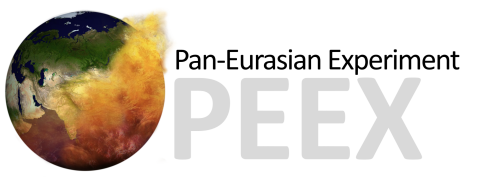Project Description
The 2nd Science Meeting of the EC Horizon-2020 RI-URBANS project (https://riurbans.eu) took place in a hybrid mode (onsite/online) during 25-26 September 2024 in Helsinki, Finland on premises of the Finnish Meteorological Institute. This event attended almost 50 participants onsite and almost 80 persons online.
The Science Meeting focused on the key topics of the RI-URBANS project. During first day: a plenary session of invited talks followed by an overview and summary of the RI-URBANS project status/ progress on Work Packages (WP) since the 2nd Science Meeting (https://peexhq.home.blog/2023/11/01/2nd-science-meeting-of-ri-urbans-project) in Delft, The Netherlands (18-19 October 2023). During second day: a series of presentations and discussions on developed RI-URBANS Service Tools (ST); and onsite visit to the SMEAR-III urban station (located on the Kumpula Campus of the University of Helsinki). Note, that the poster session was also open on both days of the meeting.
The Science Meeting targeted to demonstrate on how Service Tools (STs) from atmospheric Research Infrastructures (RIs) can be adapted and enhanced to provide advanced air quality (AQ) measurements in European cities and industrial, harbor, airport, and road traffic hotspots, as well as areas with significant levels of air pollution and associated health effects.
RI-URBANS combines advanced scientific knowledge and innovative technical work to develop pilot STs that will enhance the capacity of the Air Quality Monitoring Networks (AQMNs) to provide the necessary observations to evaluate, predict and abate urban air pollution. The project is directly connected with ACTRIS (Aerosol, Clouds and Trace Gases Research Infrastructure; http://www.actris.net) and ICOS (Integrated Carbon Observation System; https://www.icos-cp.eu) in terms of use of STs, networking supersites and data management. RI-URBANS focuses on human exposure to outdoor ambient ultrafine particles (UFP, particle number concentrations, PNC and particle size distribution, PSD), atmospheric particulate matter (PM, in mass concentration) in terms of their sizes and constituents, as well as their gaseous precursors (including volatile organic compounds, VOCs and ammonia, NH3).
The 3rd Science Meeting scope included the following major topics: (i) summary of research outputs from WPs since the 2nd Science Meeting; (ii) developed RI-URBANS Service Tools and their applications; (iii) guidance documents (Art 10, Annex 7 of new EU AQ Directive) for implementing advanced AQ parameters (UFP, PSD, BC, NH3, VOCs, PM speciation, source apportionment, evaluation of health effects); (iv) added value of measuring the listed above AQ parameters at Pan-European scale in urban areas; (v) open access to RI-URBANS compiled data.
During the first day, on 25th Oct 2024, after the RI-URBANS coordinators’ presentation about the project progress report and outputs since 2nd Science Meeting, a series of invited talks was given and these included: Effect of new AQD to AQ monitoring and air protection work at Helsinki Metropolitan area by Hanna Manninen (Helsinki Region Environmental Services Authority, HSY, Finland); Health effects of UFP in Germany by Annette Peters (Helmholtz, Munich, Germany); Overview of WHO Science and Policy Snapshots by Kerolyn Katrina Shairsingh (World Health Organization, WHO); Revised Ambient Air Quality Directive by Silvia Monge (European Environmental Agency, EEA).
Then, reporting on progress/ status update since the 2nd Science Meeting were given for WPs 1-5 followed by discussions and next steps for each WP. The progress and next steps for data management in RI-URBANS project were presented and discussed. The General Assembly (involved leaders of beneficiaries) and the Steering Committee (involved PCT, WP Leaders + Data, Innovation & Risk Managers) took place. Moreover, more than 10 posters were displayed during 2 days of the meeting. A social event was also organized on evening – joint dinner at the floating panorama restaurant “Meripaviljonki”.
During the second day, on 26th Sep 2023, the reporting on progress of RI-URBANS Service Tools (STs) continued. Presentations included reporting about STs: for PM Speciation; for SA Offline, Online, Multi-Time PM; for SA BC, UFP, and VOCs; for VOCs; for NH3; for Vertical Profiles PBL; for Vertical Profiles Aerosols; for Vertical Profiles IAGOS; for Urban Mapping and Citizen Science; for Urban Mapping and Deterministic Modelling; for Multiscale UFP Modelling – by different partners of the consortium. The presentations followed by discussions on STs and 2nd reporting period to EC (video, discussion of results and next steps for each WP) and wrap-up of the 3rd Science Meeting. In addition, for participants a visit to the SMEAR-III urban station (at the Kumpula Campus of the University of Helsinki) was organised.
Detailed programme of the 3rd Annual Science Meeting is available at: https://riurbans.eu/event/ri-urbans-3rd-science-meeting-2
Reported Deliverables and achieved Milestones are available at: https://riurbans.eu/project/#deliverables-and-milestones
Peer-reviewed publications are available at: https://riurbans.eu/results/#publications
Text by: Xavier Querol, Tuukka Petäjä, Marta Monge Azemar, Nahid Atashi, Hillka Timonen, Alexander Mahura
